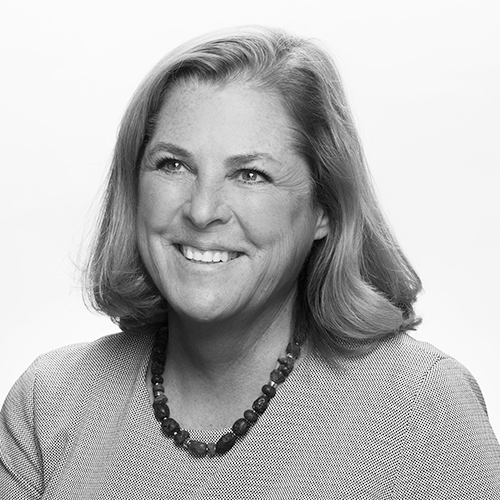The general wisdom for leadership in businesses is that communication is important—but sometimes that advice can be taken to an extreme. “Death by meetings,” is a common occurrence, and can be almost as bad as not communicating at all.
Communication is a balancing act, and no one understands that better than Rachael Jeck, co-general counsel for VCA, which is the leading provider of pet healthcare services in the United States. VCA has fostered a company culture that doesn’t rely solely on either communication or independence.
“It’s a collaborative culture that allows us to work independently,” Jeck says. “It’s not about, ‘What’s your role? Who are you in the pecking order?’ It’s about identifying needs and being part of the solution to solve them.”
That problem-solving approach, she adds, de-emphasizes the title and stresses the importance of skill set. “We pull together the right people from the right departments,” Jeck says.
As an example, Jeck mentions the rise in litigation against companies for their alleged failure to have their websites comply with the Americans with Disabilities Act. When she began working on this problem for VCA, the solution wasn’t to turn to the head of marketing. Instead, she partnered with the marketing team member responsible for launching the company’s new website.
A CLOSER LOOK AT VCA
VCA began as a privately owned company in 1986 that had one animal hospital to its name. Today, it’s the largest family of animal-care providers in the United States, with more than 780 hospitals spread across forty-three states, five Canadian provinces, and diagnostic services provided at more than 19,000 independent hospitals. After acquiring Camp Bow Wow (a doggy day care and boarding business) in 2014, VCA now lists daycare and boarding among its services at more than 130 locations across the country.
“There isn’t a lot of bureaucracy, or running through several layers of approval,” Jeck says. “We identify what we need to do to fix a problem and do it.”
However, explaining the model doesn’t necessarily answer the key question: Does VCA’s communicative style come at the cost of efficiency?
“I think it’s a much more efficient model,” Jeck says. “You see a problem, you fix it. There are no managers here whose sole job is to supervise or delegate tasks.”
Jeck is an example of this attitude. Even as an attorney with more than twenty years of practice, she still writes position statements—something she’s been doing since she was a first-year attorney.
“I know how to do it, so why not do it?” Jeck says. “I’m not going to waste money outsourcing it or delegating it because I consider it ‘beneath me,’ if I have time to do it. And that’s true for everybody.”
As no one considers themselves “above” any tasks, the culture at VCA is fairly informal—everything from the way people dress to the way they interact with one another. At first glance, this may seem like part of a larger trend to make employees feel comfortable by offering a casual dress code. However, Jeck says allowing casual dress is a long-standing policy, one with roots in the company’s core culture.
VCA’s chief executive and operating officers, Robert and Arthur Antin, are brothers who were raised in a home with a modest income, so they understand the challenges working-class families face. The Antins didn’t want any of their employees to have to spend money on two wardrobes—one for work, one for life.
“That’s a mirror of their values, which has impacted the culture,” Jeck says.
Another part of that culture is to value progress and problem-solving over perfection. In theory, the quest for perfection can greatly impact employees’ willingness to take on projects and offer creative solutions—any of which could fail.
“People are human; they make mistakes, and that’s okay. It’s one thing to say that and another to embrace it.”
“There is an attitude from our CEO and COO that people are human; they make mistakes, and that’s okay,” Jeck says. “It’s one thing to say that and another to embrace it.”
As a result, she says no one at VCA feels as if they aren’t “high up” enough to speak with the company’s executives. This atmosphere fosters creative problem-solving, as employees are welcomed to voice opinions and solutions.
Cultures such as these are built in steps and with initiatives, which for VCA, started with its founders. Before it became popular for companies to offer after-work bonding experiences, VCA implemented activities such as yoga classes and get-togethers as part of its culture.
The success of such initiatives can be seen with the company’s growth. It started small and has grown through acquisition—buying one hospital, then another, and so on. Today, VCA owns and operates more than 700 facilities. But Jeck is quick to add that the mom-and-pop-shop feeling hasn’t entirely gone away.
“If anything, there’s a tension as they’ve gotten this big to act like a bigger company,” Jeck says. “The small-company model doesn’t always work anymore.”
Even with the tension, there’s still a tremendous amount of stability at VCA. Turnover is low among senior leadership. Jeck herself has been with the company for more than fourteen years. She knows how the culture affects turnover—as an employment lawyer, she handles many human resources functions for VCA. She describes VCA’s policy as “compassionate HR.” That policy is grounded in a belief that no one should ever be surprised when they are fired. People make mistakes, and VCA’s answer is to coach them through those mistakes rather than immediately jump to a punitive measure.
“We need to have standards and expectations, but people should be given second chances, unless there has been a major offense,” Jeck says. “Even then, employees should know which offenses will result in firing. I start every HR training reiterating that no one should be surprised to be fired.”
The policy is enforced using the same egalitarian communication that defines how employees at VCA solve problems on a daily basis.
Given that the company is founded on a unique culture, it’s not surprising that the structure of the legal department is different than most corporate in-house teams. VCA operates with a co-general counsel model. Jeck was the first in-house attorney to join VCA in 2002. She came to VCA with a background in employment law and litigation.
When she joined, VCA had 5,000 employees. Today, it employs more than 21,000. Not surprisingly, that substantial growth brought the need for more lawyers. Jeck still handles all employment law matters and oversees all litigation because she is the attorney with that skill set. However, VCA hired two other lawyers over the years for their expertise in areas such as acquisitions and general corporate work. With the addition of those team members, VCA found that it didn’t make sense for them to report to Jeck, as she handled entirely different practices. Ultimately, it made sense for all three lawyers to report directly to the CEO.
“There has never been a question of who’s higher in the pecking order,” Jeck says. “We just do what falls in our skill set, and eventually, it made sense for us all to call ourselves co-GCs. It happened organically, but it works.”
The typical pyramid model of management, Jeck insists, causes more inefficiencies than it solves; adding barriers to communication and slowing processes but not necessarily adding any value or expertise. The egalitarian attitude of VCA not only empowers employees both in and out of legal—it creates a culture of trust that few people want to leave.


